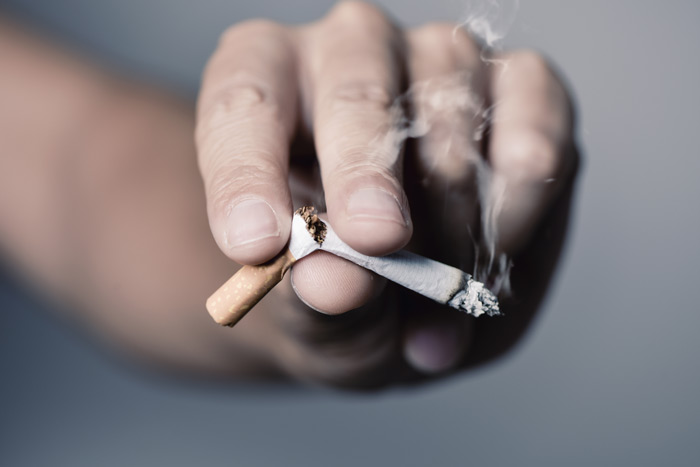Here is something pretty obvious: Nicotine is an addictive drug.
Here is something else that is pretty obvious: Recovery centers are in the business of helping people give up addictive drugs.
And here’s a bit of a conundrum: Some recovery centers—including The Aviary Recovery Center—permit smoking during treatment. Cigarettes contain nicotine, so shouldn’t recovery centers prohibit them?
It is a fair question. And the answer is a little bit complicated.
It turns out that smoking helps many people manage depression, anxiety, and irritability. It also seems to be the case that a hit of nicotine can help a person in recovery manage cravings for other drugs or alcohol.
So, allowing smoking during treatment has some benefits. You might say it is the lesser of two evils. Of course, when we hear the phrase “lesser of two evils,” we tend to focus on the word “lesser.” We’d like to suggest that when it comes to nicotine, the word to focus on is “evils”—as soon as you are able to do so.
Nicotine Should Be a No-Go
The first reason a person in recovery should give up smoking as soon as possible is one we have already touched upon: Nicotine is an addictive drug, and a person in recovery for a substance use disorder is best served by completely avoiding addictive substances. Of course, giving up nicotine may well subject you to withdrawal symptoms—including strong cravings—but there are effective strategies for overcoming those symptoms.
Addiction to nicotine makes you vulnerable to the many, many negative health outcomes that have been linked to smoking and to exposure to secondhand smoke.
These health outcomes include (but are certainly not limited to):
- Significant damage to your lungs and the development of a number of diseases including cancer
- Problems related to circulation that can cause and exacerbate other issues
- Aging-related impacts that include causing you to look and feel older than you are
- Your smoking can cause any or all of these outcomes in those close to you via secondhand exposure to the chemicals in the smoke
Smoking & the Recovery Risks of Isolation
Back in the day, you could smoke just about everywhere—indoors, outdoors, in crowds. These days, of course, the places you can smoke are far more limited. And that means smokers can become more isolated from others.
If you have to go find a designated smoking area frequently, you are going to start missing things. You might be out of the loop at work. You might miss out on the fun during social gatherings. You might miss making a connection with someone because you have to cut a conversation short to go smoke.
All of those things are bad enough for a run-of-the-mill smoker, but for the smoker who is also in recovery, this constant interruption of opportunities to connect with others can lead to a sense of isolation and loneliness that can actually upend your recovery.
Okay, But What Are The Aviary’s Rules?
Perhaps you have read this far—maybe you have even nodded along—but also know that you want to be able to smoke while you are in treatment. You might be wondering what rules apply at The Aviary Recovery Center.
Fair enough.
Smoking is permitted in designated areas during designated times (remember what we said about how smoking can isolate you from others?). Smokeless tobacco is also allowed (though, of course, there are plenty of health risks associated with this as well), but electronic cigarettes and vapes are not.
The Aviary Recovery Center can also provide nicotine replacement therapy so that you can kick the habit during treatment and start your recovery journey without feeling an urgent need to light up.
Let Us Help You Extinguish a Substance Use Disorder
At The Aviary Recovery Center, we are wholly committed to helping people free themselves from the grip of a substance use disorder. We listen intently and then create a personalized treatment plan to help you regain—and then maintain—your sobriety. Our approach is grounded in evidence, experience, and compassion, and we are dedicated to providing the strategies, resources, and support you need to stride confidently into recovery.
When it comes to substance use disorders, where there is smoke there is generally fire. So if you suspect you have a problem (or that a loved one is struggling with addiction), reach out to us. We are ready and able to help.










